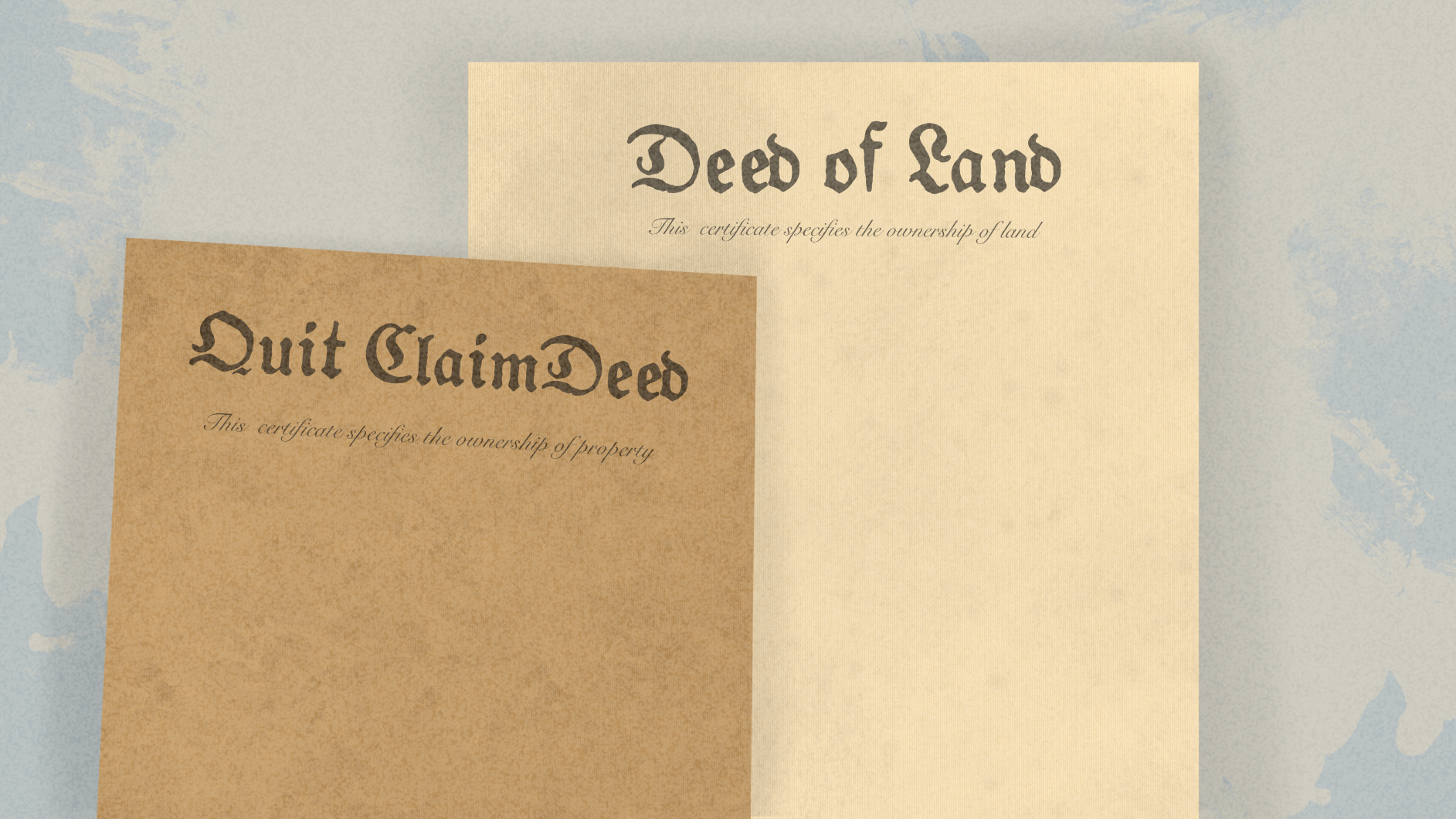Deeds are instruments used to transfer interest in property between the grantor and a grantee. But not all deeds are the same. One of the more common deeds is a quitclaim deed, which has special uses that don’t apply to typical home sales.
Before creating a quitclaim deed or transferring property, there are a few things you’ll want to know.
Contents
- What Protections are Offered?
- Does a Quitclaim Deed Affect My Mortgage?
- When to Use a Quitclaim Deed
- Video: Quitclaim Deeds
What Protections are Offered?
Subsets of deeds offer different levels of protection, usually in the form of warranties that guarantee that the title is clear of defects, liens, and encumbrances, as well as assurances that the seller holds real interest in the property. A general warranty deed offers a grantee superior protection and guarantees a clean title both during and before the grantee’s period of ownership. But quitclaim deeds, which are also called non-warranty deeds, offer the lowest level of protection. They provide no guarantees, and the grantor is not liable for any issues that the grantee experiences down the road.
- Quitclaim deeds do not guarantee that the grantee legally owns the property
- There are no guarantees made that the grantee has the ability to transfer title
- Quitclaims provide no warranties that the property is free from liens or other claims against the property
- Quitclaim deeds do not certify that the property is free of encumbrances
Does a Quitclaim Deed Affect My Mortgage?
Quitclaim deeds only transfer title and do not change anything about a lending relationship. If a grantor were to quit claim to a property, the grantee would hold title, but the grantor would still be responsible for paying the mortgage. The mortgage does not transfer to the grantee along with rights of ownership.
It is possible for the grantee to hop onto the mortgage with approval from the lender. But if the grantee simply tells the grantor that they will pay the mortgage and do not follow through, the grantor may be liable for the missed payments.
Moreover, some mortgages have a due-on-sale clause, which means that the entire amount of the mortgage is due upon transfer of title. If you have a mortgage and are looking to quit claim to your property, you’ll want to explore options with your lender sooner than later.
When to Use a Quitclaim Deed
While an absence of warranties may make quitclaims seem riskier — and they are — they’re perfect for use in situations where the property’s history is known well, or if the grantee knows the grantor personally. Moreover, they’re quick to execute and are relatively simple.
Quitclaim deeds are often used for the following reasons:
- Transferring title between family members
- Transferring property to a trust
- Removing a spouse from the title after divorce and court-order for a quitclaim
- When there is no exchange of money (between family, etc.)
- Curing small title defects, such as a misspelled name
- When the grantor wants no liabilities
- When the grantor is unsure of the status of the title
